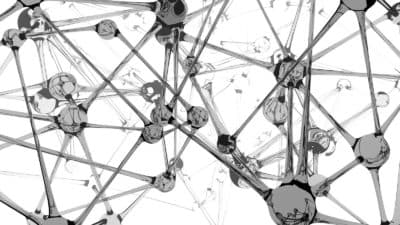Schizophrenia and Addiction
Schizophrenia is a disabling, and often severe, mental illnesses, and it’s also one of the most widely misunderstood diseases. Schizophrenia is a mental health disorder characterized by impairment in thought patterns and emotional responses, making it difficult to discern between what is real and what isn’t real.
Unfortunately, there is often very negative stigma attached to schizophrenia. Society often looks at schizophrenia with indifference, judgment, or fear, but schizophrenia is not a moral problem or a problem with one’s intellect.

It is simply a chemical imbalance in the brain, and as such, it is a medical illness.
The disorder is not caused by bad parenting, a split personality, or a character flaw; it is a disorder of the brain.
Because this disorder is so often misunderstood, it is important to know the symptoms, which people are at risk for developing it, and how it is diagnosed. With proper care, people struggling with schizophrenia can live full, productive lives.
Prevalence of Schizophrenia
About 2.5 million Americans suffer from schizophrenia, per the Treatment Advocacy Center. People with schizophrenia are much more likely to attempt suicide than the general population, and about 10 percent succeed in ending their lives, per the National Institute of Mental Health.
The term schizophrenia comes from the Greek word skhizein, which means “to split,” and phren, which means “mind.” A common misinterpretation is that people with this disease have a split personality, but the name actually refers to a split perception, between the real world and a fantasy world of paranoid delusions. Many people with schizophrenia suffer from hallucinations, which means that they may hear voices that don’t exist. Usually, the voices tell people struggling with schizophrenia things that are terrifying or negative. Oftentimes, those suffering from schizophrenia may not recognize that the voices are not real.
Diagnosing schizophrenia isn’t easy as it involves ruling out other causes that could be related to the symptoms. No hospital tests exist to diagnose the disorder; rather, behavior is studied over a period of time and family history is taken into consideration.
Several diagnosis systems are used worldwide. The most common criteria for diagnosis are outlined in Diagnostic and Statistical Manual of Mental Disorders, 5th Edition (DSM-5).
Schizophrenia Symptoms
For a diagnosis of schizophrenia, the following symptoms are generally present:

- Positive: These symptoms are not seen in healthy individuals, and they include symptoms that illustrate a disconnect with reality, such as hallucinations and delusions. Most people struggling with schizophrenia have auditory hallucinations. Visual hallucinations affect about 25 percent of those struggling with schizophrenia. In addition, positive symptoms may include agitated movements or a catatonic state.
- Negative: These symptoms illustrate a disturbance to standard behaviors and emotions. Symptoms may include passivity, lack of motivation, and a blunted affect. These symptoms are serious as they often affect a person’s ability to function in day-to-day life.
- Cognitive: These symptoms are harder to detect than positive or negative symptoms. They may include disorganization and cognitive impairment as well as difficulties with focus and attention span.
The symptoms of schizophrenia may be sudden, appearing within days or weeks; however, they may also develop slowly over time. People may exhibit deep paranoia, visual and auditory hallucinations, illogical thinking, and flat emotional responses to situations. Those experiencing these symptoms are often unaware that they need medical attention. If these symptoms appear, it is important to seek help right away.
Without proper treatment, schizophrenia can take a tremendous toll on a person’s life. Many people can’t work, are unable to care for themselves, and have few or no personal relationships. Those suffering from schizophrenia often lose ties with their family and become more isolated.
Schizophrenia affects men and women of every age, race, and economic class. It most commonly appears in men during their teens and 20s. For women, it usually begins in their 20s and early 30s. In rare cases, it even affects children, per the National Institute of Mental Health.
Causes
While researchers have not identified a single cause of schizophrenia, they do know that several factors can contribute to the development of the illness. Some factors include brain abnormalities and a family history of the illness.
Schizophrenia occurs in roughly 10 percent of people who have a first-degree relative, such as a parent or sibling, with the disorder.
Since schizophrenia shares many symptoms in common with other mental illnesses, diagnosis can be difficult. To make an accurate diagnosis, a medical professional will closely examine a person’s mental health history. A doctor may also want to interview family members and friends of the patient.
Substance Abuse
Almost 50 percent of people who have schizophrenia struggle with substance abuse at some point in their lives. The co-occurrence of these two disorders can lead to various negative outcomes, such as homelessness, incarceration, violence, and suicide.

Sometimes, substance use and addiction can mimic the symptoms of schizophrenia. Certain drugs can make a person hallucinate. Some substances can result in paranoia and disorganized thoughts and behavior, which are also symptoms of schizophrenia. Several studies show there is a potential link between marijuana and psychosis. It is believed that mood-altering substances can trigger an earlier onset of schizophrenia for those who are at risk.
Contrary to popular belief, those suffering from schizophrenia are not prone to violence. Oftentimes, instead, these individuals tend to be withdrawn and isolated rather than seeking out confrontations.
Reasons for Increased Substance Abuse
Individuals with mental health issues, including those dealing with schizophrenia, abuse substances at higher rates than the general population for various reasons. Among them are:
- Self-medication: In an effort to counteract the negative symptoms of schizophrenia, individuals may abuse drugs and alcohol. Rather than helping to settle the symptoms, substances generally worsen them. It can then be difficult to differentiate the symptoms of schizophrenia from the symptoms of substance abuse.
- Medication side effects: Antipsychotic medication can bring some unpleasant side effects for some individuals, such as dizziness, drowsiness, or weight gain. Individuals may attempt to counteract these side effects with substances. For example, a person may take uppers like cocaine in an effort to combat drowsiness or counteract weight gain.
- Isolation: Oftentimes, those suffering from schizophrenia isolate themselves from family members and friends. This often leads to loneliness, and individuals may turn to drugs or alcohol in an effort to deal with those negative feelings.
Treatment for Schizophrenia
Though schizophrenia can be debilitating, safe and effective treatment options are available to help manage the disease. Medications, psychotherapy, and peer and family support groups can all be used to keep the illness under control. These therapies can help people recover from the damaging effects of the disease.

Studies show that combined treatment of low dosages of antipsychotic drugs, one-on-one talk therapy, and family support can be effective for those suffering from schizophrenia. Prompt treatment is essential. The sooner treatment is started after the first episode, the better individuals do in recovery.
Schizophrenia does not have to limit or impair people from their goals or pursuits in life. People with schizophrenia who receive appropriate medication and therapy can often work, live on their own, develop rewarding relationships, and maintain a good quality of life.
If co-occurring disorders are present, such as schizophrenia and substance abuse issues, treatment that addresses both issues is needed. Per NIDA, comprehensive treatment that focuses on all aspects of the person’s health has the best chance for continued success. If only the schizophrenia is treated, it’s likely that the person will return to substance abuse post rehab. Likewise, if only the substance abuse issues are treated, it’s likely that schizophrenia symptoms will trigger a return to substance abuse.
River Oaks, one of American Addiction Centers’ drug and alcohol rehab centers in Florida, is ready to help you overcome addiction and find long-term recovery. Call us today at to learn more about our comprehensive addiction treatment program near you.